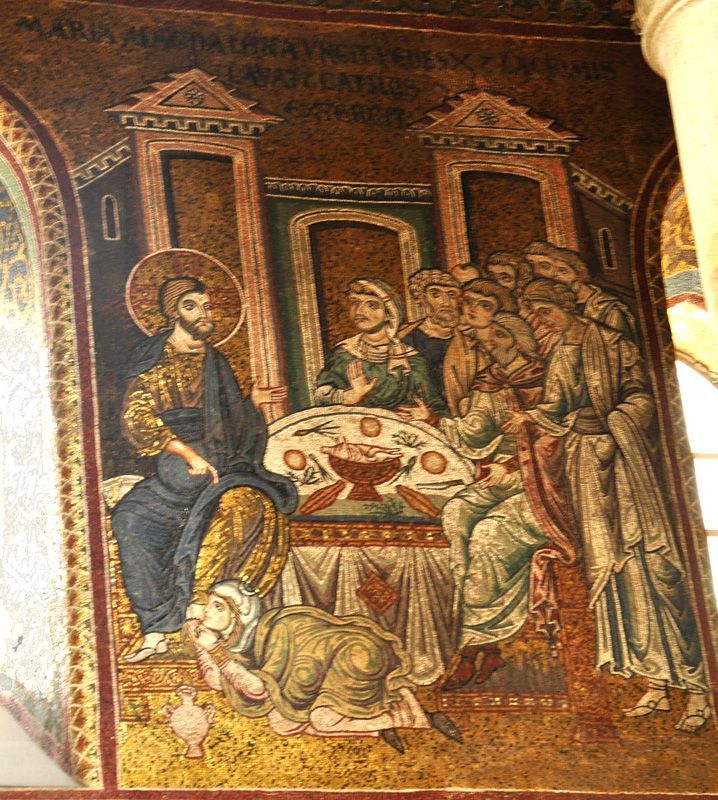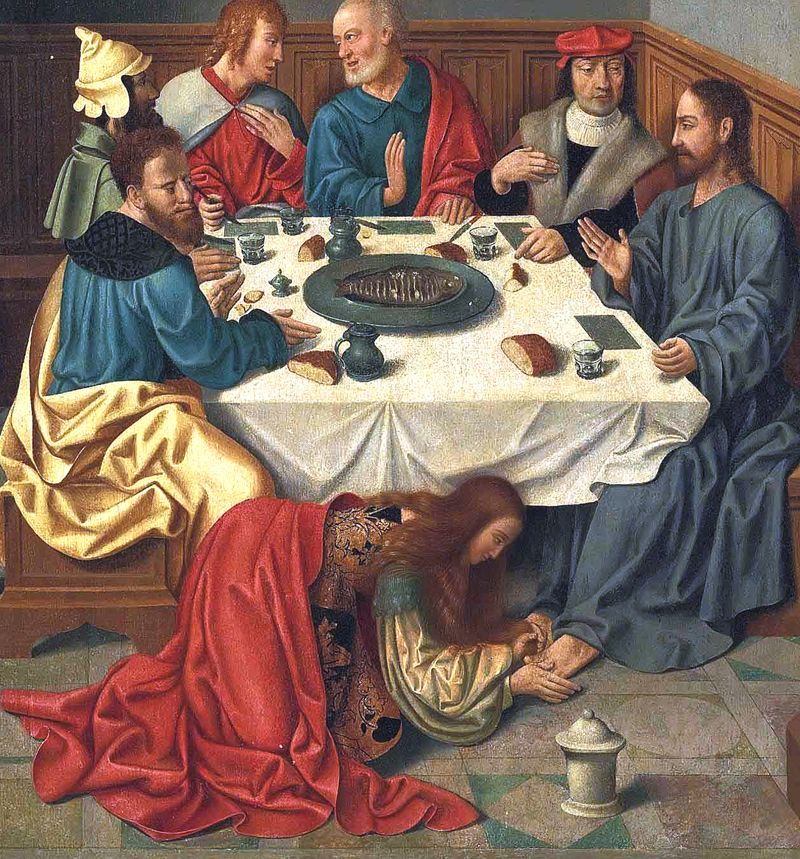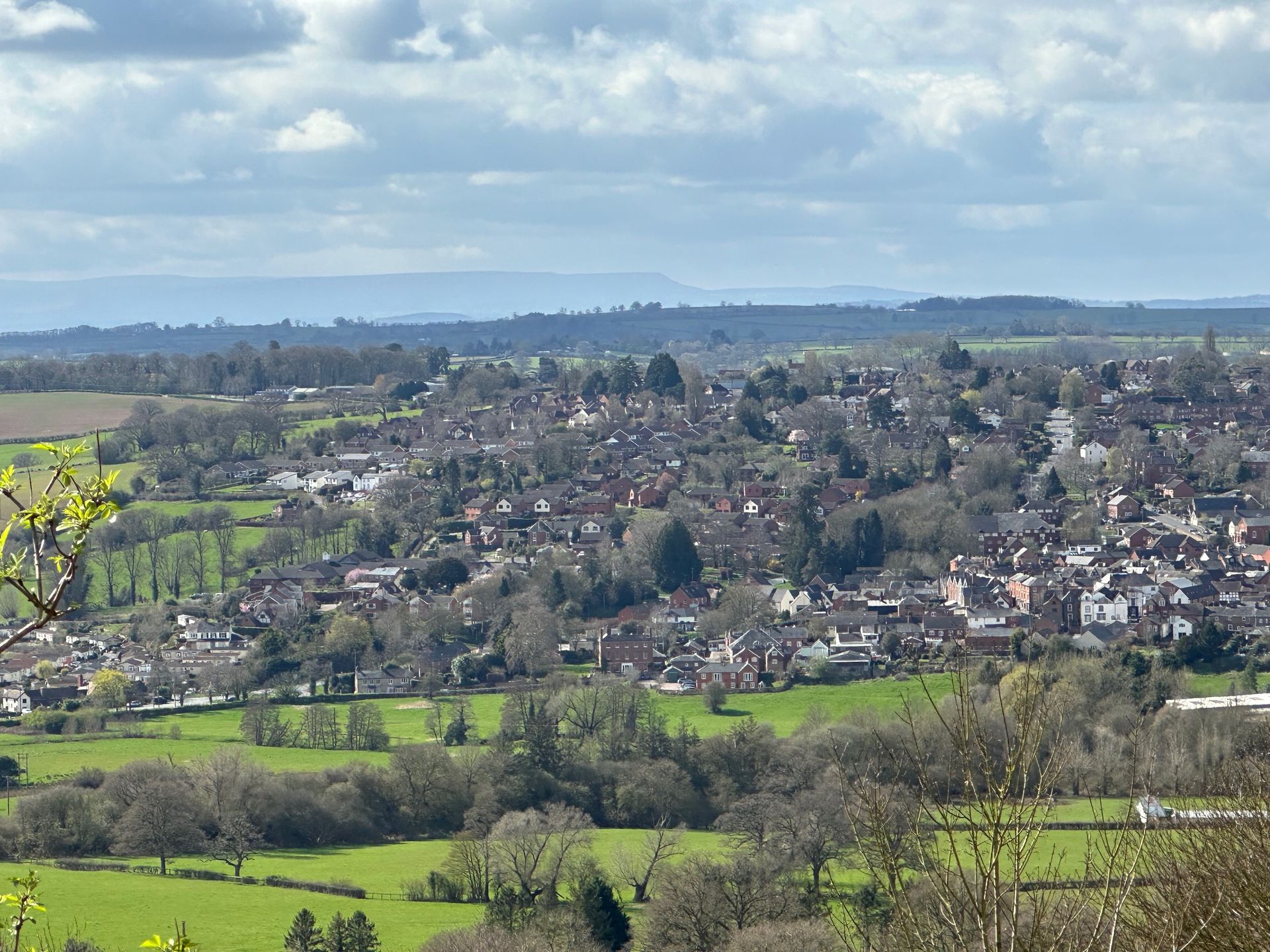Message of Abbot Paul - Holy Monday - 25th March 2024
Abbot Paul • March 24, 2024




Yesterday, being Palm Sunday, was a busy yet thoroughly enjoyable and spiritually enriching and uplifting day, even if a little tiring, what with all the driving in addition to three celebrations of Mass with blessing of palms and reading of the Passion narrative. One way of relaxing for me is to drive up onto the Bromyard Downs, then take a short, brisk walk, admiring the breathtaking views of the town and surrounding countryside and breathing in pure, invigorating, God-given oxygen. What bliss, a taste of heaven!
We read in today’s Gospel passage from John, (Jn 12: 1-11), that, “Six days before the Passover, Jesus went to Bethany, where Lazarus was, whom he had raised from the dead. They gave a dinner for him there; Martha waited on them and Lazarus was among those at table. Mary brought in a pound of very costly ointment, pure nard, and with it anointed the feet of Jesus, wiping them with her hair; the house was full of the scent of the ointment.” Martha, Mary and Lazarus were close friends of Jesus and he loved them dearly, as they loved him. As Bethany was close to Jerusalem, where else would he go after his triumphal entry into Jerusalem? He needed to get away from the crowds, and yet wherever he went, the crowds followed. This was to be a Last Supper with his friends, but the presence of Lazarus at table was proof of the power of life over death and the ability of Jesus to bring life out of death. Mary’s act of anointing the feet of Jesus with pure nard is sheer extravagance: it would have taken a man’s wages for a whole year to buy that amount of the perfumed oil. This was the manifestation of a genuine love and she acted on behalf of the family.
However, Judas intervenes: “Then Judas Iscariot – one of his disciples, the man who was to betray him – said, ‘Why wasn’t this ointment sold for three hundred denarii, and the money given to the poor?’ He said this, not because he cared about the poor, but because he was a thief; he was in charge of the common fund and used to help himself to the contributions. So Jesus said, ‘Leave her alone; she had to keep this scent for the day of my burial. You have the poor with you always, you will not always have me.’” His words are cynical as they are untrue. He has no interest in the poor. His only interest is to stuff his own pockets full of the money Jesus and his disciples have been given. John tells us that he was a thief and Jesus isn’t fooled. There are always poor people who need help and Judas has had plenty of opportunity to help them, but it’s only his envy at Mary’s generosity that has suddenly brought them to mind. Jesus links the anointing to his death and burial. Just as the house is now filled with the perfume, so the whole of God’s creation, and the Church in particular, will be filled with the perfume of forgiveness and salvation that will be the fruit of his death and resurrection.
The raising of Lazarus from the tomb increased Jesus’ fame among the people, while fuelling the hatred the religious leaders in Jerusalem had for him. John tells us, “Meanwhile a large number of Jews heard that he was there and came not only on account of Jesus but also to see Lazarus whom he had raised from the dead. Then the chief priests decided to kill Lazarus as well, since it was on his account that many of the Jews were leaving them and believing in Jesus.” People were keen to see Jesus and curious, I should imagine, to see Lazarus. Wouldn’t you be? But the chief priests were intent on quelling this outbreak of religious fervour that verged, for them, on the seditious. They were afraid of upsetting the political status quo with the Romans. The only solution would be to do away with Lazarus as well as with Jesus. Plans were afoot to do this.
Lord Jesus, grant us grace not to be afraid to follow you faithfully throughout our lives, to give you lovingly the very best of ourselves in the service of the poor and those in any need. Lord, we are yours: do with us as you see best. Amen.









